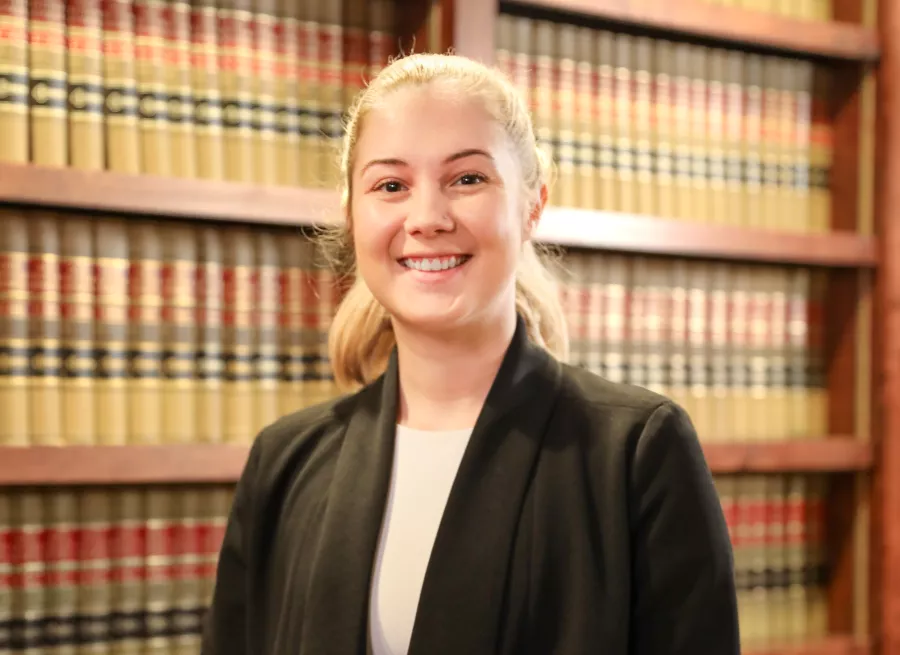Behavioral Interventionist
Overview
The Behavioral Interventionist Certificate is an 18-credit program that prepares students to support individuals facing substance abuse and mental health challenges. Graduates will be equipped to participate in essential care in a variety of settings such as mental health facilities, addiction treatment centers, and community organizations. This certificate is an excellent foundation for those looking to enter or advance in the human services or behavioral health fields, opening career opportunities in a growing and impactful industry.
Program Type
Academic CertificateHow to Enroll
To pursue this degree, you must apply to MTC using our online application.
Questions?
Sample Program Plan and Costs
Class Delivery Methods
View current courses offered via our online course directory.
| On-Campus | Traditional. Classes meet on campus. |
|---|---|
| Virtual | 100% online. Meets with a live instructor and classmates on specific days, at specific times. Uses web conferencing software, like Zoom. |
| Hybrid | Some classes on campus. Some classes online or virtual. |
| Online | 100% online. Due dates for projects and assignments. Self-paced work on your time. |
Full Time Schedule
| Semester | Course ID | Course Title | Classroom | Online | Hybrid | Virtual | Credits |
|---|---|---|---|---|---|---|---|
| Semester 1 (9 Credit Hours) |
HUS-102 |
Pers & Prof Dev in the Help Prof Pers & Prof Dev in the Help Prof ID: HUS-102 Credit Hours: 3 This course provides students with the opportunity to gain a greater awareness of self through values clarification activities, reflective writing, etc., and to understand how attitudes, values and beliefs impact both their personal and professional lives. |
• | • | • | 3 | |
| HUS-208 |
Alcohol and Drug Abuse Alcohol and Drug Abuse ID: HUS-208 Credit Hours: 3 This course is a study of the etiology of alcohol and drug abuse, various types of addictive substances, physical, mental and social implications, programs in rehabilitation, and preventive education. |
• | 3 | ||||
| HUS-230 |
Interviewing Techniques Interviewing Techniques ID: HUS-230 Credit Hours: 3 This course covers the development of skills necessary for interviews in various organizational settings. Students in human services will use these skills and knowledge later on their supervised field placements. |
• | • | 3 | |||
| Semester 2 (9 Credit Hours) |
HUS-101 |
Introduction to Human Services Introduction to Human Services ID: HUS-101 Credit Hours: 3 This course covers an overview of the field of human services. Role responsibilities, problems, boundaries, and strategies of human service workers are included. This course also includes an overview of agencies in the service area, curriculum requirements and career opportunities. A 20-hour practicum in a social service organization is required. |
• | • | 3 | ||
| HUS-217 |
Addictions Counseling Addictions Counseling ID: HUS-217 Credit Hours: 3 This course provides specific skills for the diagnosis and treatment of substance abuse and addictions. Topics to be discussed include causes and diagnoses of addictions, and treatment modalities. |
• | 3 | ||||
| HUS-237 |
Crisis Intervention Crisis Intervention ID: HUS-237 Credit Hours: 3 This course is a study of the effects of crisis on people, the methods of intervention, and other use of multiple resources to reestablish individual function. Students are required to demonstrate mock crisis activities. |
• | • | 3 | |||
| Total Credit Hours | 18 | ||||||
| Estimated Cost Financial Aid |
$3,600.00 Not including fees and equipment |
||||||
What’s next after I complete this program?
Clinical Counselor I
Students could continue with training and receive their certificate to be a treatment counselor by completing training in pharmacology, anatomy and physiology, addiction counseling techniques, advance case management classes and training.
MTC Human Services Associate Degree
Students could continue with college courses at MTC to earn their associates in applied science in Human Services. Human Services graduates have many options to work more broadly in the helping field. Those options include working with individuals and families in social services, homeless agencies, prison systems, adoption, mental health, and elderly care services.


